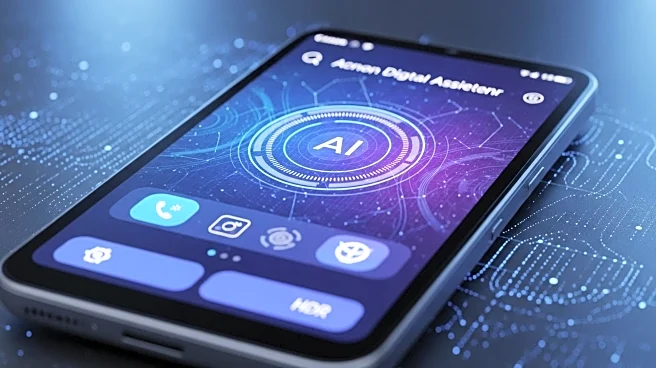What's Happening?
Slackbot, the assistant within Slack, is receiving AI enhancements to function more like an AI chatbot. These upgrades will allow Slackbot to perform tasks on behalf of users, such as analyzing documents and assisting with projects. Slack will integrate with platforms like Google Drive, One Drive, and Salesforce, and collaborate with AI providers like OpenAI and Anthropic. Currently in beta, the AI version of Slackbot is limited to 70,000 users, with plans for a broader release in January 2026. Companies will have the option to disable Slackbot if desired.
Why It's Important?
The transformation of Slackbot into an AI assistant marks a significant shift in how team communication platforms operate. By integrating AI capabilities, Slack is enhancing its functionality, making it more competitive against rivals like Microsoft Teams. This development could lead to increased efficiency in workplace communication and collaboration, as users can leverage AI to automate tasks and gain insights. The trend of AI-ification in apps, driven by the success of tools like ChatGPT, is reshaping the tech landscape, attracting investor interest and prompting companies to innovate.
What's Next?
Slack plans to release the AI-enhanced Slackbot to all users in January 2026, with a broader rollout later in the year. As businesses adopt these new capabilities, they may need to adjust their workflows to incorporate AI-driven automation and insights. The competitive landscape in team communication platforms may intensify, with companies seeking to differentiate themselves through advanced AI features. Slack's ongoing collaboration with AI providers suggests continued innovation and expansion of its AI capabilities.
Beyond the Headlines
The integration of AI into Slackbot raises questions about data privacy and security. As AI tools become more embedded in business operations, companies must ensure that sensitive information is protected. Slack's use of Amazon Web Services' virtual private cloud for its AI features addresses some privacy concerns, but ongoing vigilance and regulation may be necessary to maintain ethical standards. The broader implications of AI in workplace tools include potential shifts in job roles and responsibilities, as automation changes the nature of work.









